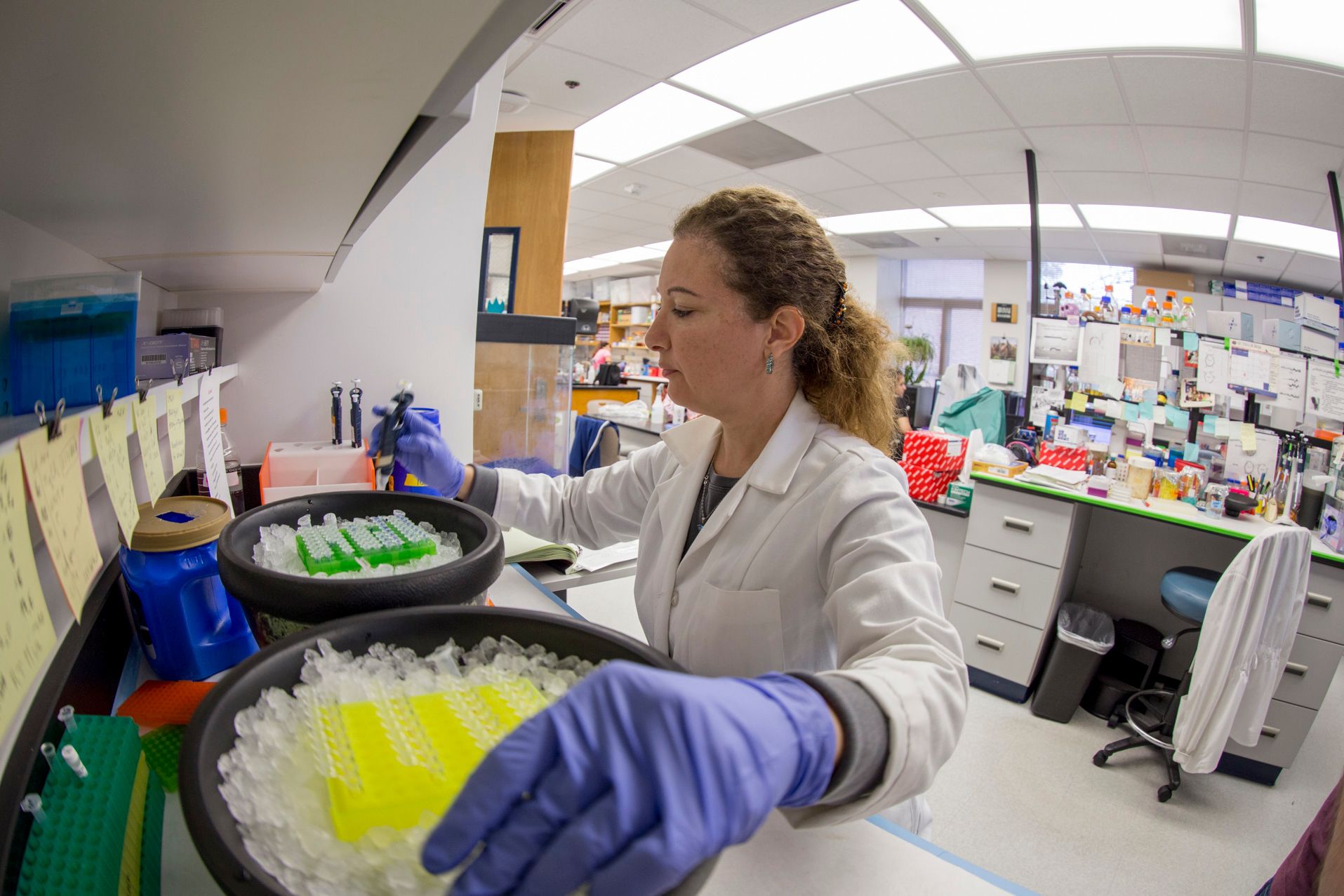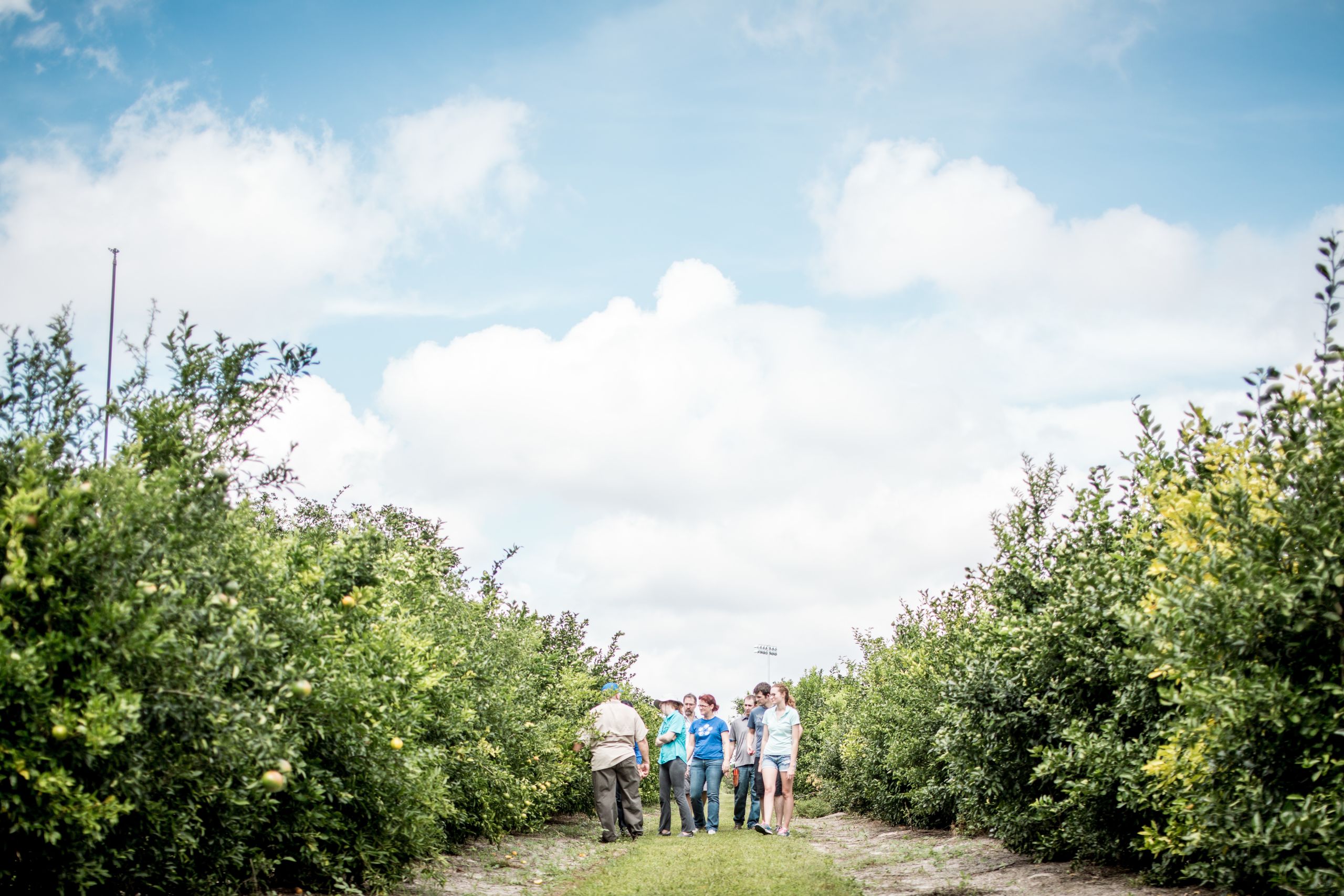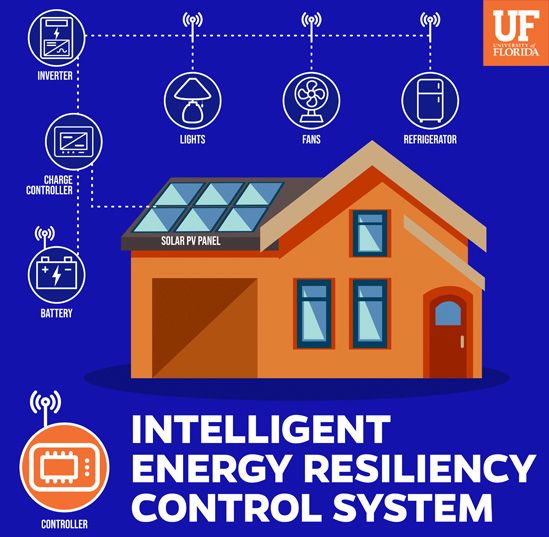Groundbreaking research with far-reaching impact

How the University of Florida drives economic and societal changes across the globe
When minds at the University of Florida collide, solutions emerge that play a significant role in advancing our fundamental understanding of the world. They generate creative breakthroughs that lead to new technologies, stimulate economic growth and alter the trajectory of societal norms. With nearly $1 billion in research conducted annually, researchers, students and peers collaborate across disciplines to solve some of today's most pressing challenges.
Engineering sustains coastlines
The University of Florida Center for Coastal Solutions (CCS) takes engineering to the shore with a mission to predict and prevent environmental, health and economic impacts to coastal communities.
The center and the Sanibel-Captiva Conservation Foundation (SCCF) have formed a Comprehensive Coastal Observing Network (CompCON) to monitor, model and deliver data products immediately useful for informing decisions related to addressing coastal hazards.
Coastal communities around the world, like Sanibel, need clean water to preserve residential lifestyles, tourism, fishing and a host of other activities. This project will strengthen the resiliency and sustainability of this unique coastal area in Florida and beyond.
From cleaner water to healthier crops
Like water, farming is essential to humanity. The University of Florida Institute of Food and Agricultural Sciences (IFAS) has developed artificial intelligence technology that helps farmers better care for their crops. Utilizing drones, satellites and A.I., the system assesses plant stress, counts and categorizes plants based on their height and canopy area and estimates plant nutrient content. It is now commercially available to growers throughout the country to help feed the world's growing population.

IFAS students conduct citrus research in Florida groves.
IFAS students conduct citrus research in Florida groves.
“U.S. growers can use this novel technology to count plants and predict yield, to detect stressed plant zones earlier and to develop maps for precision and variable-rate fertilizer applications,” said Ampatzidis, a University of Florida assistant professor of agricultural and biological engineering. “The maps can optimally apply fertilizers, reduce application cost and reduce environmental impact.”
Art and medicine heal
The University of Florida Center for Arts in Medicine and the EpiArts Lab take two unexpected areas of study and merge them into multiple methods for spreading light and promoting healing. The goal? Making the arts a prescribable, permanent fixture in U.S. policy.
The center has been a leader in education, research and outreach since 1996. As the nation’s preeminent hub in the field, it was the first higher education institution with an Arts in Medicine academic program in the U.S., as well as the first and only in the world with an arts in public health graduate certificate program. Since then, the program has expanded across the entire university community.

Collage of artwork by David Meadows, Deja Belardo, Tamara Torres, Darmon Davis, and Julia Justo.
Collage of artwork by David Meadows, Deja Belardo, Tamara Torres, Darmon Davis, and Julia Justo.
Through the power of music, dance, visual arts and theatre, Arts in Medicine researchers, faculty and students are demonstrating the impact the arts can have on emotional and physical well-being. From a Music in Emergency Medicine program to an Anti-Racism Arts Response Repository, extraordinary talents are being put to use to help heal.
“As we know, artists are influencers. And, the arts are essential to our individual and collective wellbeing,” says Jill Sonke, the director of the Center for Arts in Medicine at the University of Florida.
The searchable, open-access database allows anyone to explore or submit any art form to amplify marginalized voices, facilitate dialogue and promote action and change.
An electric brainstorm surge
On any given day, a natural disaster can impact thousands of homes and cause wide-spread power outages. Costs of powering a home during loss of electricity are steep, and it can be challenging to locate fuel in the aftermath of a devastating storm. Enter, the Intelligent Control System: a solution developed by collaborative researchers stemming from both the Department of Electrical & Computer Engineering and the Department of Mechanical & Aerospace Engineering.

Thankfully, the Intelligent Control System removes the need for fuel. It is powered by solar energy that uses A.I. to prioritize what appliances receive electricity during an outage and how much. The system sends a wireless signal to receivers connected to designated outlets to turn on or off power as needed.
If the team can decrease the cost of installation, it can move on to the next phase: seeing it in as many homes in the U.S. as possible.
The University of Florida’s far-reaching impact
The University of Florida is uniquely a comprehensive university with 16 colleges and hundreds of centers and institutes on its main campus and at research facilities around the state. Fueled by curious minds and a collaborative spirit, it successfully serves as a launchpad for ideas — with the momentum to solve global problems and move the world.
This content was paid for and created by the University of Florida. The editorial staff of The Chronicle had no role in its preparation. Find out more about paid content.



